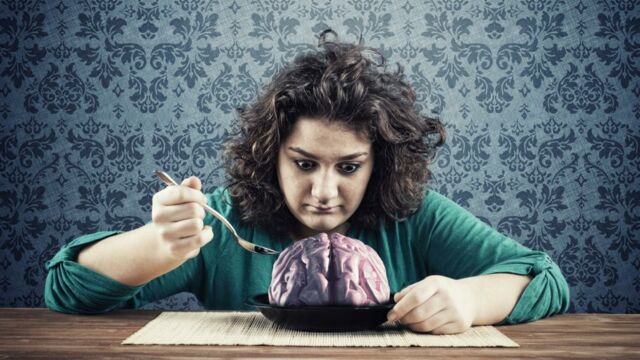The human brain is the largest organ in the body, and to say that it's an important one would be a bit of an understatement, to say the least.
Discover our latest podcast
Fun fact time: the average human weights between 1,300 and 1,500 grams, with 60% of its weight being made up of fat. It is also approximately 16.7cm long, 9.3cm high and 14cm wide.
If we ate the brain (or any other part of the body for that matter) that belonged to someone who had a disease, there is a chance that we would contract the disease that person was carrying.
Even if we cooked it, there is evidence that certain types of diseases caused by what are known as ‘prions' - or misfolded proteins - would not be destroyed by the cooking process and so we could end up contracting them.
In addition, as we have already mentioned, eating human brains is historically associated with neurological disorders. Papua New Guinea’s Fore tribe ate their dead as part of a funeral ritual.
However, they stopped this ritual when scientists discovered that when they ate human brains, they could contract a disease known as Kuru, which seriously affects the brain’s grey matter and leaves it sort of like a deformed sponge.
As well as the Kuru disease, you can also contract disorders such as transmissible spongiform encephalopathies (TSE). Common symptoms of TSEs include changes to your personality, unusual feelings, insomnia, confusion, severe headaches and memory problems.
Other side effects include psychiatric problems such as depression. These diseases and conditions do not have specific treatments or cures and over the course of a few months or years, usually end with death.
So long story short, if someone offers you some brain, politely decline.















